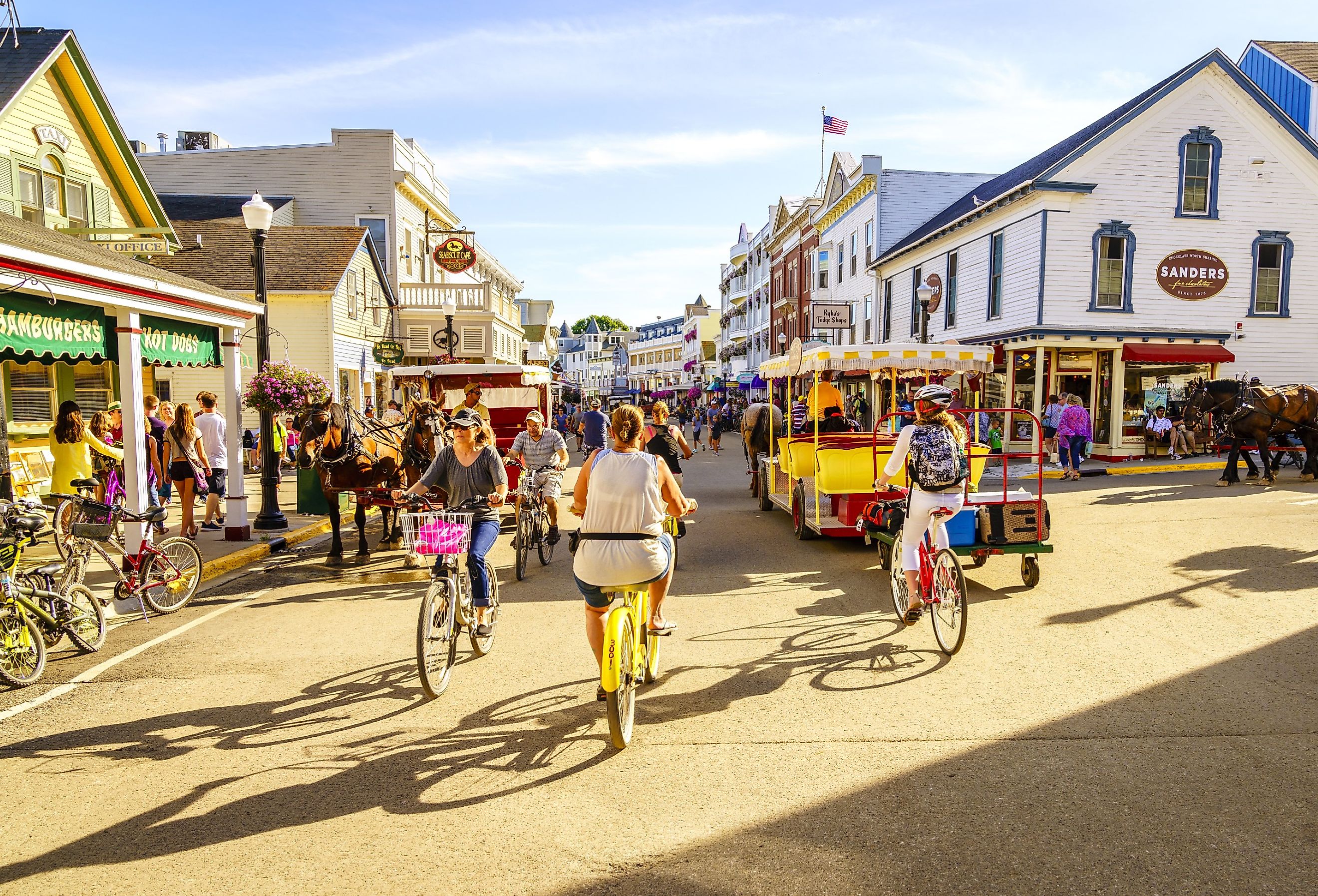
These 7 Towns in Michigan Have Beautiful Architecture
Michigan is known more for cars than buildings, but that does not mean the automotive state is in a state of architectural decay. Sure, big cities like Detroit have suffered from economic decline, and many of their buildings reflect that change, but it is in small communities where buildings thrive. Certain Michigan "towns" (most are actually classified as cities) have castles, gnome houses, Bavarian villas, exceptionally preserved historic sites, and even a nine-story, color-changing home. Find communities with the most beautiful architecture throughout the Great Lake State.
Charlevoix
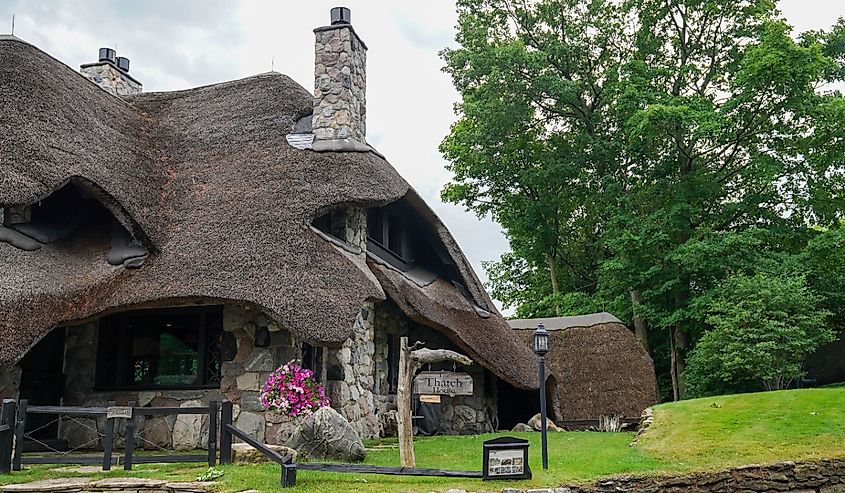
Charlevoix has the edifices to match its elegant French name. On the Lake Charlevoix side of this three-lake city is Castle Farms, a former dairy farm built in 1918 by businessman Albert Loeb to resemble Normandy-style castle grounds. Today, its 25 remaining acres of buildings, gardens, fountains, ponds, and giant chess sets serve as an event venue and tourable oasis in Northern Michigan.
You might have to redefine "elegance" to visit Charlevoix's other distinctive buildings: the Earl Young Mushroom Houses, AKA Earl Young Gnome Houses, AKA Earl Young Smurf Houses, AKA Earl Young Hobbit Houses. These Tolkienesque hillside hovels were built by a self-taught architect with curved rather than straight lines. As such, they look like something a mythological dwarf would live in. Unfortunately, they are private properties that do not offer inside tours, but you can fantasize from a distance.
Frankenmuth
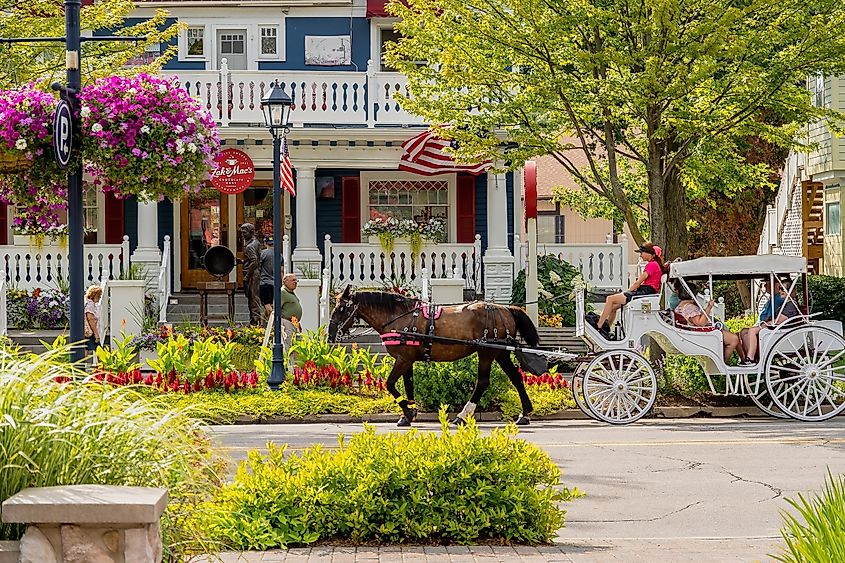
Like Charlevoix, Frankenmuth resembles its name. No, it is not full of monsters and scary laboratories. Rather, it is full of Franconian architecture inspired by the Franconia area of Bavaria, Germany. "Michigan's Little Bavaria" boasts the Bavarian Inn Lodge, Frankenmuth Cheese Haus, Zak & Mac's Chocolate Haus, Kern's Sausages, Frankenmuth Historical Museum, and Silent Night Memorial Chapel, which is a replica of the chapel in Salzburg, Austria, that marks the site where the Christmas carol "Silent Night" was first performed.
Lastly, though they would be more appropriate near Earl Young's Charlevoix houses, over 40 garden gnomes are hidden throughout town. You can hunt for Bavarian gnomes and homes in Frankenmuth.
Marshall

Marshall, though home to only about 6,800 people, has one of the largest and most iconic historic districts in the state. In 1991, the Marshall Historic District, which comprised around 800 buildings, was designated a National Historic Landmark. Today, the Marshall National Historic Landmark District is a preserve of pretty properties from circa 1831 to 1940 that represent a dozen architectural styles. Gothic Revival is exemplified by the Mary and John Gehrig Home (c. 1860). Bungalow style is boasted by the Dave and Kim Byrens Home (c. 1925). Italianate, Gothic Revival, and Hawaiian flavorings fill the Honolulu House (c. 1860). Also, listed separately on the National Register of Historic Places is the Governor's Mansion, a Greek Revival home built in 1839 in anticipation of Marshall becoming Michigan's capital. It never happened.
Marshall offers myriad tours to see these and other sites. Self-guided excursions include the Marshall Historic Markers Tour and the Influencer/Selfie Walk, while guided jaunts consist of the Marshall Historic Home Tour and the Candlelight Walk.
Northport
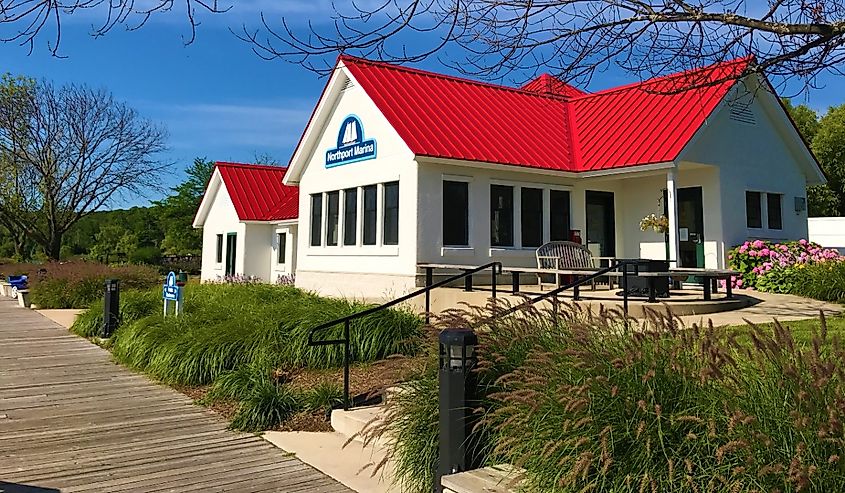
Located just south of Charlevoix on Lake Michigan, Northport is a quaint village with a wide range of architecture. At one end of the spectrum is the Grand Traverse Lighthouse, a red and white beacon of functionality that lit up the peninsula for nearly 120 years before transitioning into a museum. At the other end is the Chameleon House, a nine-level postmodern home that changes color to match its surroundings, ala the titular lizard. In between are classically attractive small-town haunts like Fingers Crossed, The Mitten Brewing Co., The Northport Inn, and the New Bohemian Cafe. Northport has more color than most Michigan communities.
Sault Ste. Marie
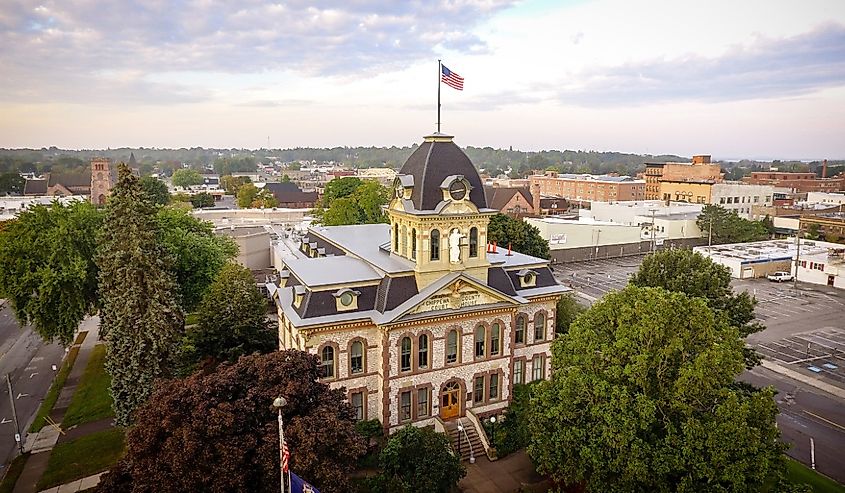
As the oldest city in Michigan, Sault Ste. Marie has an array of ancient and breathtaking buildings. Of course, "ancient" is relative to Michigan, which was not colonized until the last few centuries, but "breathtaking" is not. Look upon the Holy Name of Mary Proto-Cathedral, arguably the prettiest structure in this international border community, and see if your breathing does not waver. The same goes for City Hall, a century-plus-old sentinel that once served as the Federal Building.
If those do not do the trick, check out the Great Lakes Shipwreck Historical Society Museum, Henry Rowe Schoolcraft’s Indian Agency Office, Bishop Frederic Baraga House, and John Johnston House, the last of which was built by—or in conjunction with—the namesake fur trader in the 1820s and is considered the oldest haunt in town.
Owosso
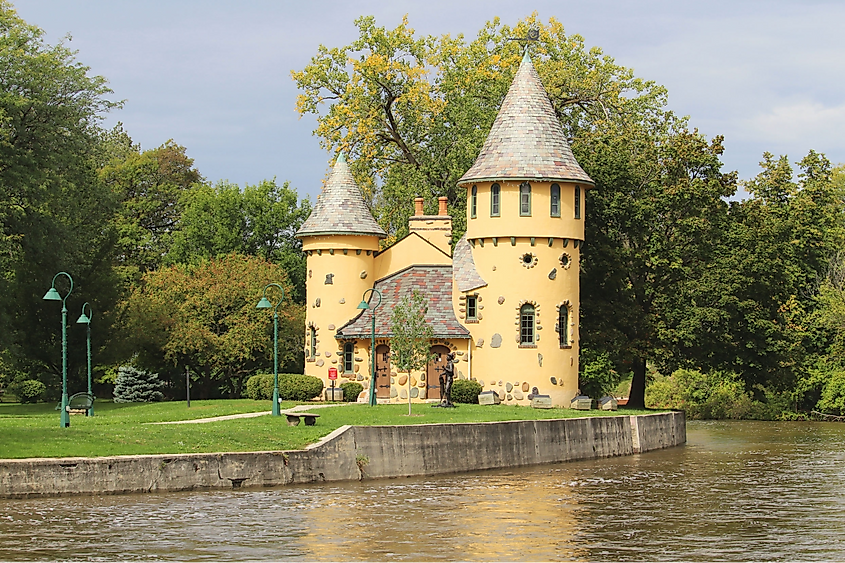
If you thought there could not be more than one castle in Michigan, behold Owosso, whose Curwood Castle has been attracting Medieval enthusiasts for over a century. Designed by author James Oliver Curwood to be a Norman chateau-style writing studio, it was built on the banks of the Shiawassee River in the center of town. Now, it hosts exhibitions and tours as a modern museum.
Although perhaps the most striking site in Owosso, Curwood Castle is mixed with hundreds of other historically and architecturally significant buildings. Many occupy the Owosso Downtown Historic District and comprise Italianate, Late Victorian, Greek Revival, Neoclassical, Commercial Brick, and Mid-century Modern styles. Highlights include the Late Victorian Duff Block and the Neoclassical Owosso City Hall.
Mackinac Island
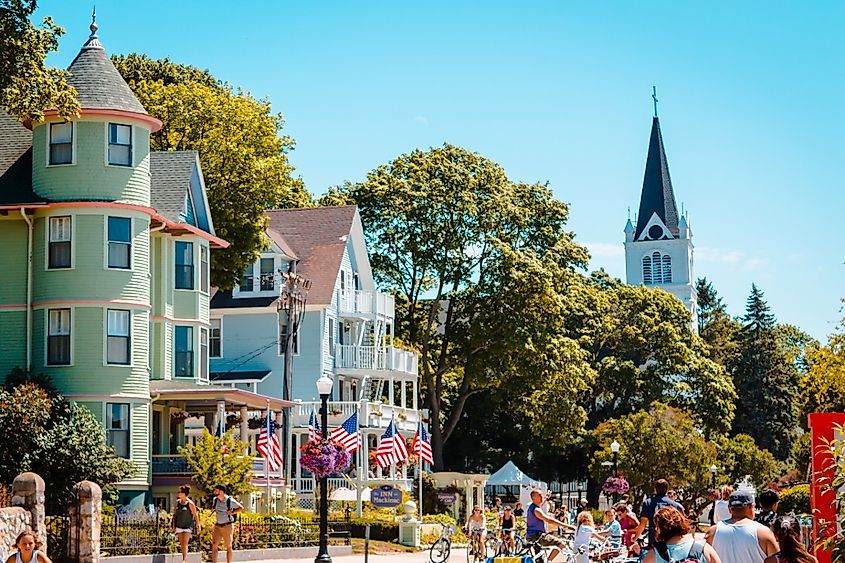
Sault Ste. Marie may be the oldest city in the state, but Mackinac Island has the oldest buildings. This 600ish-person city sits on an island of the same name and began in earnest as a fort in roughly 1780. Its Officers' Stone Quarters still stands and is considered the oldest building in Michigan. There is competition for that title, though, since specific construction dates for that era are scarce or contradictory. The two contenders are the McGulpin House and Biddle House, home to early settlers.
In addition to those elderly abodes, Mackinac Island hosts modern marvels like the Old Mackinac Point Lighthouse (c. 1889) and the Grand Hotel (c. 1887). Do not think about renting a car to tour Mackinac's architecture; motor vehicles have been banned on the island since 1898. Exceptions are emergency vehicles, service vehicles, golf carts, and snowmobiles. Feet and horse-drawn carriages are standard modes of Mackinac travel.
Skip the abandoned buildings of Detroit and Flint for the vibrant abodes of small-town Michigan. Gnome houses in Charlevoix, Bavarian businesses in Frankenmuth, Gothic Revival homes in Marshall, colorful casas in Northport, and settler sites in Sault Ste. Marie, a contemporary castle in Owosso, and an ancient fort in Mackinac Island put old Michigan in a new light. Let these communities illuminate your interest during a rural architectural tour of the state.











